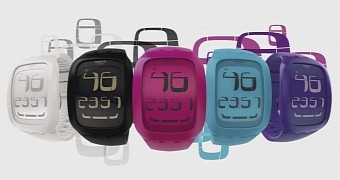Swatch Group is working on its own custom operating system for smartwatches, thus making the brand much more appealing to its customers. The company’s CEO has recently stated that Swatch intends to take on giants on the smartphone OS market, like Apple Watch and Google’s Android Wear platform.
Nick Hayek has stated for Reuters that competitors have had issues with power consumption and privacy, suggesting that Swatch’s new OS would address the matter and offer an alternative that would meet the needs of users and excel in areas where Apple Watch and Android Wear OS encountered problems.
He went on to say that Swatch partnered with Swiss research institute CSEM on a new internet-of-things ecosystem, which it plans to launch towards the end of 2018. However, Hayek doesn’t wish to make Swatch “the industry standard for smartwatches,” but rather offer better data privacy and lower energy consumption to customers, while the new OS won’t need regular updates. Hayek believes that the market shouldn’t depend on just one or two dominating operating systems.
Swatch’s OS would go against Android Wear and Apple Watch
This strategy seems a bit prudent, but well thought out. Currently, Apple Watch and Android Wear dominate the market, while the latter recently received a major update that brought integration with many features and ease of use for smartwatch owners.
However, battery life continues to be a pressing issue for consumers. For instance, Apple Watch’s battery lasts for up to one day on a single charge, while heavy use reduces the amount significantly.
Swatch has received a number of requests from US startups to develop a flexible open-source option, which would also be included in Swatch’s own products. This could offer companies that lack their own OS an alternative to Android Wear, thus reducing the influence of Google’s own smartwatch OS.
Meanwhile, Apple remains the world’s top smartwatch vendor, with higher sales compared to Garmin and Samsung, although Fitbit and Xiaomi record better performances in the overall wearables market.

 14 DAY TRIAL //
14 DAY TRIAL //